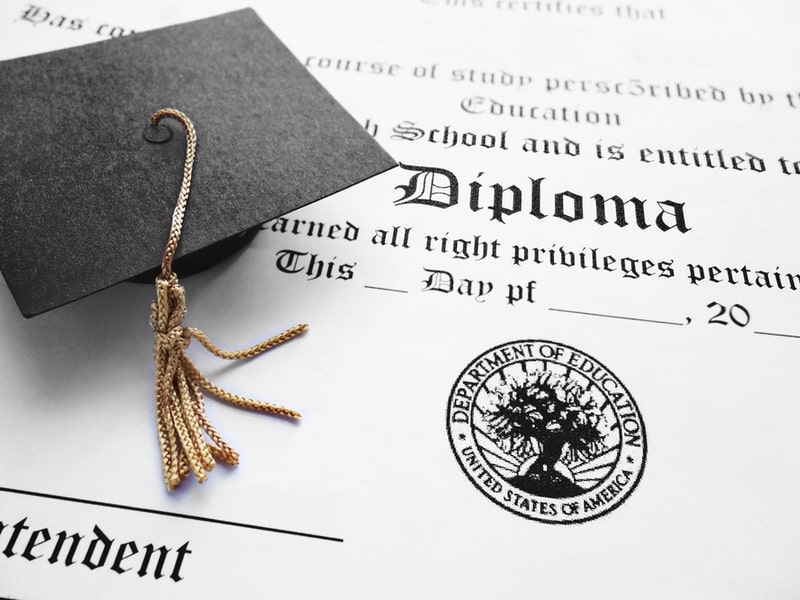Do Employers Check Education on Resumes? Here’s What You Need to Know
Your resume can spell the difference between landing the job of your dreams and checking the classified ads all over again. That’s why it can be tempting for some to lie on their resumes, especially about their education.
Employers check education on resumes. However, based on a study conducted by the Society for Human Resource Management (SHRM), only about 34% of employers do so. Those who do may carry out a verification of one’s educational background during the hiring process or after hiring the applicant.
Thinking about lying about your education to make your resume a winner? Read on.
Below, we will talk about practically everything you need to know about employers checking education on resumes — why, when and how. After checking out the entirety of this article, you will have a much better idea of whether you should continue your plan to embellish your resume or tell nothing but the truth.

Why Do Employers Take a Look at Education on Resumes?
Most employers check education on resumes in order to make sure that applicants are really who they say they are. This allows employers to verify whether or not they are ideal for the job degree-wise. In some instances, employers verify educational backgrounds on resumes for legal purposes.
It is said that approximately 40% of people lie on their resumes, and many employers know that some of those could be the individuals in front of them trying to get a job.
This is why checking education on resumes is a task that’s commonly performed by employers — for the most part, they just want to see whether or not applicants are telling the truth. Companies can definitely benefit from honest and trustworthy employees. The same, meanwhile, cannot be said for fraudulent ones.
There are instances where employers take a look at education on resumes because they have to, such as for legal intentions.
For instance, someone who is applying as a nurse should have really gone to an accredited nursing school.
Otherwise, he or she wouldn’t be able to take and pass the NCLEX to be able to have a license to work as a nurse.
Besides education, employers also check out other parts of a resume. Some of the most important content they take a look at include skills, experience, roles and responsibilities, and achievements.
Many employers also consider formatting, such as readability, font, layout and labels.
What Could Happen If Employers Found Out You Lied on Your Resume?
Different things could happen if applicants or employees lied on their resumes and employers found out about it. Job offers might be rescinded and employment statuses might be terminated. The consequences might take place during the application process or a few or many years after being hired.
An employer may conduct an educational background check before deciding to hire an applicant.
In some instances, he or she may carry it out sometime after the employee has been signed up. This usually happens when the employee is being considered or applying for a promotion. It can happen, too, if the company decides to have its employees undergo a performance improvement plan.
There are also times in which verification of an employee’s educational background is conducted with other prerequisites, such as a drug test or proof of eligibility to work in the US.
In any case, lying about one’s education on the resume could lead to disastrous results sooner or later.
How Do Employers Verify Education on Resume?
Verification of an applicant or employee’s education can be done in a couple of ways. First, the employer himself or herself may get in touch with the academic institution from which the individual claims to have graduated. Second, the employer may use a third-party education verification service.
Just because you got hired despite lying about your education on your resume doesn’t mean right away that you are off the hook and can have peace of mind for as long as you are working for the company.
As mentioned earlier, employers may still do a background check on people even if already hired.
Employers can go about this undertaking in different ways. Some of them will contact the college or university via phone or email. By providing the individual on the other end with basic information such as the name of the employee and date of attendance, employers can get their hands on the truth.
Unfortunately for them, it’s not all the time that academic institutions will disclose information to people other than their former students. But it’s very much likely for employers to simply look for other means of verification.
An option available for them is using a third-party education verification service. While it doesn’t come free of charge, unlike doing the background check themselves, this approach is more likely to give them success. Leaving the task to the experts also allows employers to fully devote their time and energy to manning their respective companies instead.

Can Employers Tell Apart Legit Schools From Diploma Mills?
Most of the time, employers can easily tell the difference between an accredited college or university and a diploma mill. Some diploma mills operating these days, however, are so sophisticated that some employers may not be able to distinguish them from legitimate academic institutions.
Some people deliberately apply to diploma mills in order to have degrees without doing any hard work. On the other hand, there are also those who are unaware that they have applied to diploma mills.
In any case, most employers can find out if applicants or employees earned their degrees from these phony schools.
Determining whether the institution is accredited by a recognized accrediting body is sometimes enough. There are times, too, when searching the name of the school online can reveal the fact that it’s a diploma mill. If an institution does not have any contact details on its website, employers will see it as a red flag.
Speaking of which, some diploma mills’ websites can make them look legit. As a matter of fact, some of them have registrars who will vouch for the “authenticity” of a diploma or degree earned from the institution.
It’s because of this why it’s not unlikely for some employers to fail to uncover the truth on a person’s education.
Related Article: How to Know If a College is a Diploma Mill [10 Signs]
Just Before You Submit Your Resume
Lying on your resume, such as about your educational background, can be tempting. As a general rule of thumb, the more desirable the job and the bigger the paycheck, the harder it is to fight off the urge. However, there is always a risk of getting busted sooner or later, which can result in something that you might regret for the rest of your life.
Always keep in mind that, technically, lying on your resume isn’t illegal. That’s because a resume isn’t a legal document, which means that you can’t get prosecuted for putting lies on it.
However, it’s enough to keep you from being eligible for a job post or to take away from you a job offer. And, in some instances, a lie told on your resume, including especially about your education, is enough to get you terminated just in case your current employer failed to conduct an education verification during the application process.
Related Questions
Should you list all colleges or universities you enrolled in on your resume?
If you went to an academic institution (or two or more) prior to the one from which you earned your degree, listing them all out on your resume isn’t necessary. Most employers, after all, care more about the degree you earned rather than the college or university you attended.
Can your resume consist of two pages?
Typically, a resume should be only one page in length. However, there are instances where a two-page resume is acceptable for as long as all the information on it is important. As a general rule of thumb, include only details that are relevant to the potential employer or prospective job position.
Source: Do Employers Check Degrees?
Disclaimer: The views and opinions expressed in this article are those of the authors and do not necessarily represent those of the College Reality Check.


![College Dropout Facts [11 Jaw-Dropping Facts]](https://collegerealitycheck.com/wp-content/uploads/dropping-out-of-college-2143265297-768x576.jpg)


